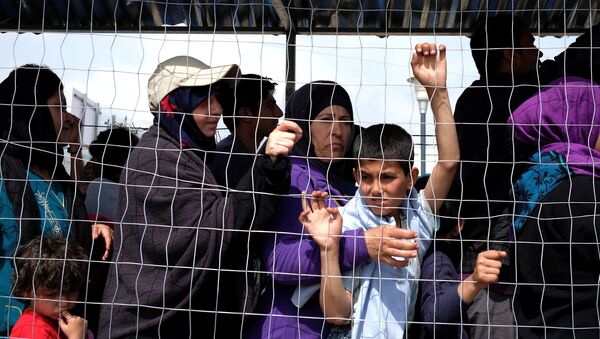Poland and Hungary has already been warned they must start taking migrants in "by June" or face sanctions by the EU, while the Czech Republic has said it would withdraw from the scheme. Slovakia, meanwhile, has begun legal proceedings against the EU over the quota scheme.
"We will specify our position on opening infringement procedures against the member states that have not relocated anyone at all or have not pledged any places for almost one year since we all decided to do it together," Dimitri Avramopoulos, EU Commissioner for Migration and Home Affairs, told reporters.
The Commission agreed, September 2015, to relocate 160,000 migrants from Greece and Italy to other EU member states, according to a quota system, based on population and GDP, among other measures.
Although the figure was revised downwards, to 98,255, only 20,327 have so far been relocated (June 2) under the scheme.
"Although most member states are now active and pledging and relocating regularly, Hungary, Poland and Austria remain the only member states that have not relocated a single person. This is in breach of their legal obligations, the commitments taken towards Greece and Italy and the fair sharing of responsibility.," the Commission said in a statement.
MEPs call on EU countries to speed up transfer of asylum seekers from Italy and Greece to meet 160,000 target → https://t.co/gshkem7ENN pic.twitter.com/4d1irfWQYr
— European Parliament (@Europarl_EN) 17 May 2017
"Austria has however formally pledged to relocate 50 persons from Italy, a decision which the Commission welcomes. Moreover, the Czech Republic has not been active in the scheme for almost a year," it said.
The Commission called on Hungary and Poland to start pledging and relocating immediately, the Czech Republic to restart relocation without delay and Austria, which has now started pledging from Italy, to start pledging from Greece.
Sanctions Process
The first stage of the EU's infringement procedure — which could happen as soon as next week (beginning June 12) — is a letter sent to all four states, which have two months to respond. If that does not satisfy, the Commission issues a "reasoned opinion" which the states then have another two months to respond to.
If that fails, the Commission takes the member state to the European Court of Justice — which could take years — after which failure to comply would lead to penalty payments.
The Commission can also consider the withdrawal of voting rights as another option.




